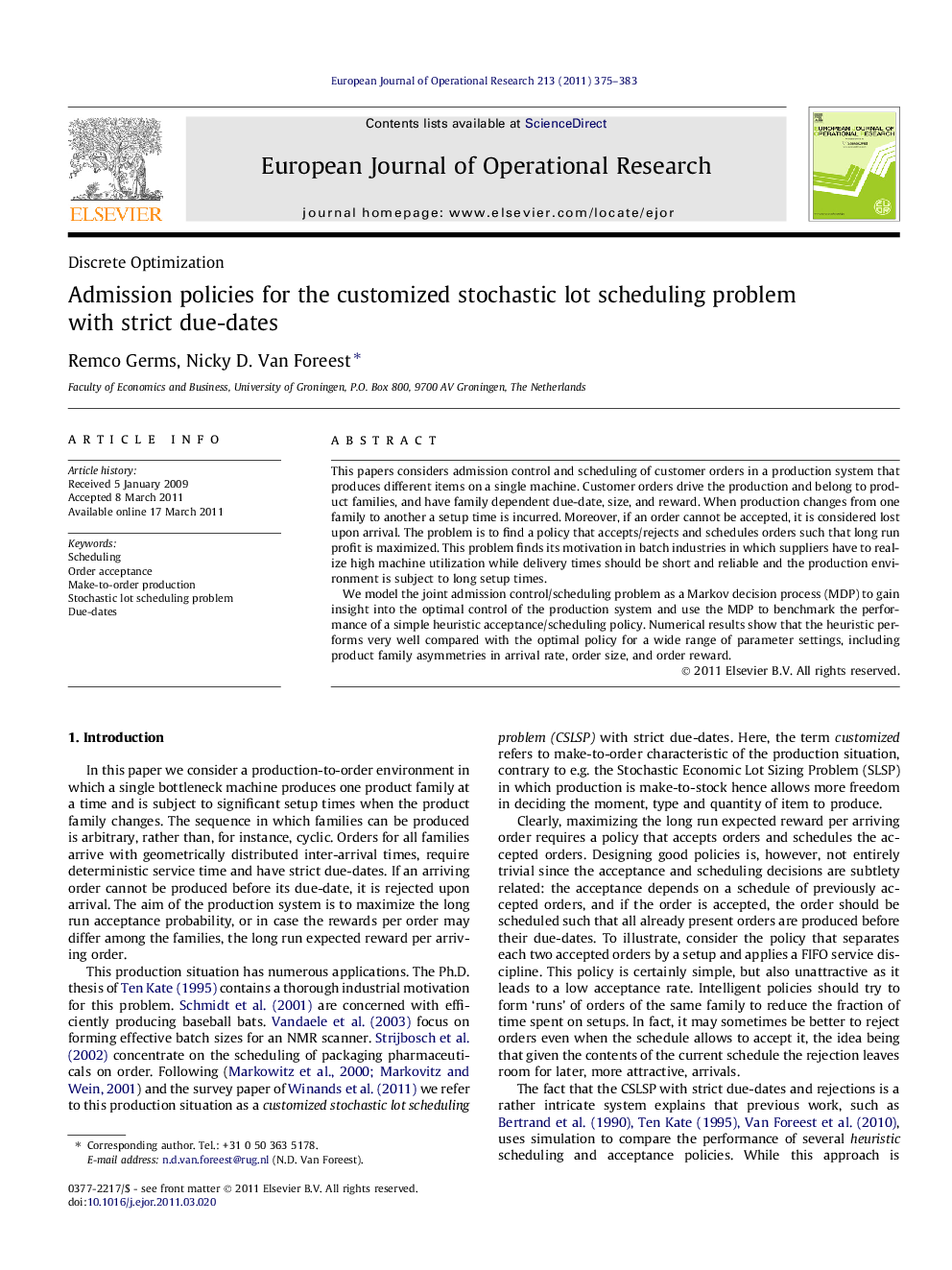| Article ID | Journal | Published Year | Pages | File Type |
|---|---|---|---|---|
| 476997 | European Journal of Operational Research | 2011 | 9 Pages |
This papers considers admission control and scheduling of customer orders in a production system that produces different items on a single machine. Customer orders drive the production and belong to product families, and have family dependent due-date, size, and reward. When production changes from one family to another a setup time is incurred. Moreover, if an order cannot be accepted, it is considered lost upon arrival. The problem is to find a policy that accepts/rejects and schedules orders such that long run profit is maximized. This problem finds its motivation in batch industries in which suppliers have to realize high machine utilization while delivery times should be short and reliable and the production environment is subject to long setup times.We model the joint admission control/scheduling problem as a Markov decision process (MDP) to gain insight into the optimal control of the production system and use the MDP to benchmark the performance of a simple heuristic acceptance/scheduling policy. Numerical results show that the heuristic performs very well compared with the optimal policy for a wide range of parameter settings, including product family asymmetries in arrival rate, order size, and order reward.
► We consider a stochastic lot scheduling problem with setup times between orders of the different families and orders can be rejected upon arrival. ► A stochastic dynamic programming formulation allows to compute an optimal acceptance and scheduling policy. ► This optimal policy is used to benchmark a heuristic simple threshold policy. ► The heuristic is shown to perform very well under a wide range of parameters settings.
